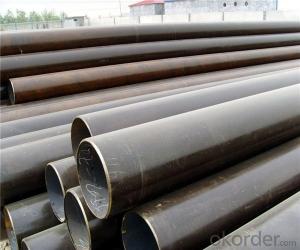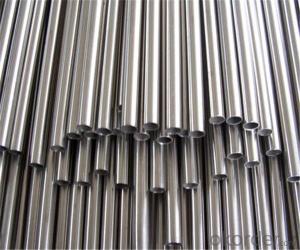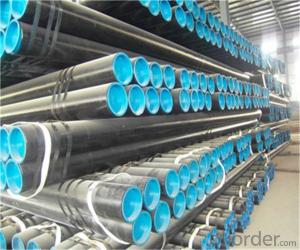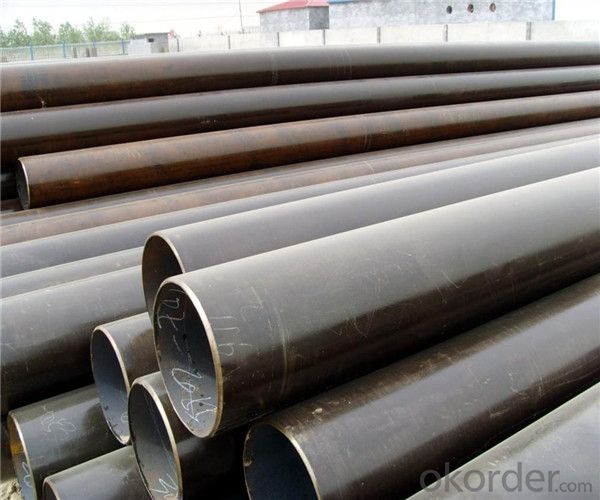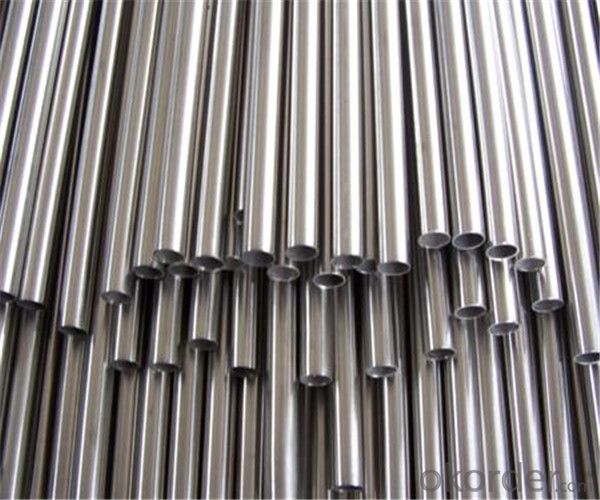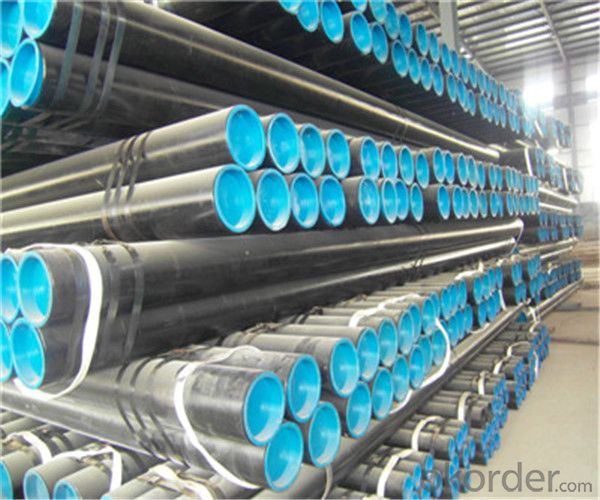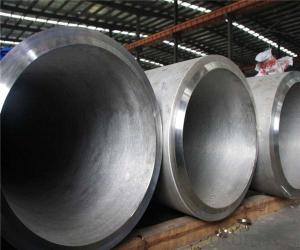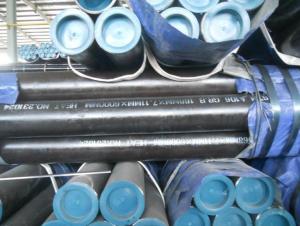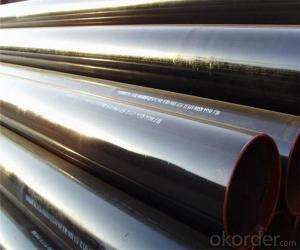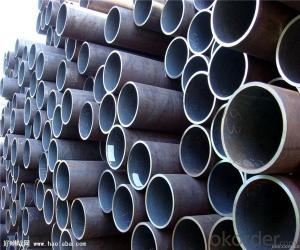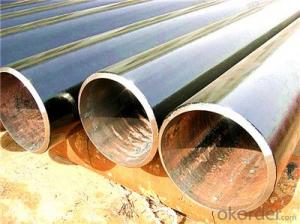2016 Seamless steel pipe from CNBM International Group with strong heat dissipation ability
- Loading Port:
- Tianjin
- Payment Terms:
- TT or LC
- Min Order Qty:
- 100 m.t.
- Supply Capability:
- 3000000 m.t./month
OKorder Service Pledge
OKorder Financial Service
You Might Also Like
PRODUCT DETAILS
1.Structure of Seamless Steel Pipe Description:
A large amount of Seamless Steel Pipes is offered to the clients at cost effective rates. These pipes are extremely durable, resistant to corrosion and have high tensile strength. Our pipes are used in nuclear plants, power plants, refineries and construction industry across the country. Furthermore, we are capable of providing these seamless pipes to the clients in bulk quantity.
2.Main Features of the Steel Pipe:
• High manufacturing accuracy
• High strength
• Small inertia resistance
• Strong heat dissipation ability
• Good visual effect
•Reasonable price
3.Packaging & Delivery:
| Packaging Details: | Seaworthy packages, bundles wrapped with strong steel strip |
| Delivery Detail: | 15-30 days after received 30% TT |
4.Seamless Steel Pipe Specification:
| Standard: | GB, DIN, ASTM,ASME, ASTM A106-2006, ASTM A53-2007 |
| Grade: | 10#,20#, 45#, 16Mn |
Thickness: | 8 - 33 mm |
| Section Shape: | Round |
| Outer Diameter: | 133 - 219 mm |
| Place of Origin: | Shandong, China (Mainland) |
| Secondary Or Not: | Non-secondary |
| Application: | Hydraulic Pipe |
| Technique: | Cold Drawn |
| Certification: | API |
| Surface Treatment: | factory state or painted black |
| Special Pipe: | API Pipe |
| Alloy Or Not: | Non-alloy |
| Length: | 5-12M |
| Outer Diameter: | 21.3-610mm |
5.Product pictures
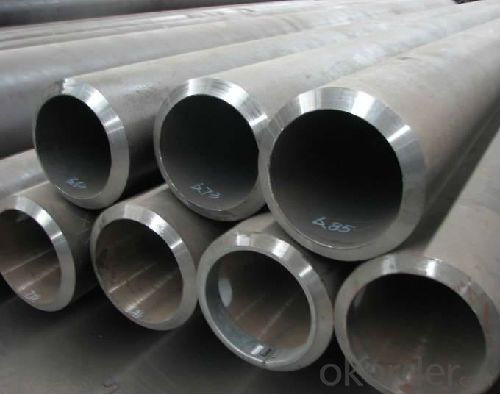
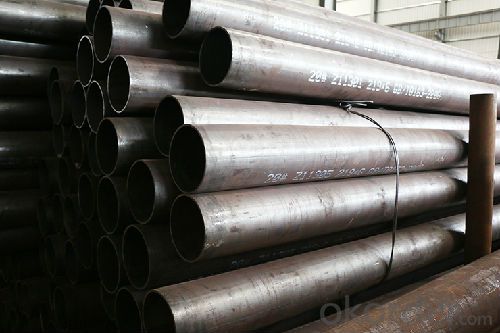
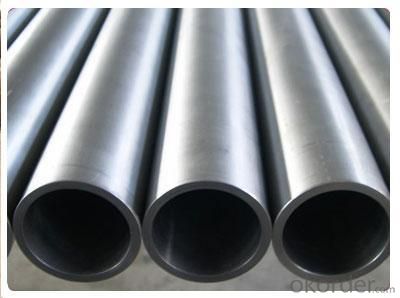
6.FAQ of Seamless steel pipe:
①How is the quality of your products?
Our products are manufactured strictly according to national and internaional standard, and we take a test
on every pipe before delivered out. If you want see our quality certifications and all kinds of testing report, please just ask us for it.
Guaranteed: If products’ quality don’t accord to discription as we give or the promise before you place order, we promise 100% refund.
②How about price?
Yes, we are factory and be able to give you lowest price below market one, and we have a policy that “ for saving time and absolutely honest business attitude, we quote as lowest as possible for any customer, and discount can be given according to quantity”,if you like bargain and factory price is not low enough as you think, just don’t waste your time.Please trust the quotation we would give you, it is professional one.
③Why should you chose us?
Chose happens because of quality, then price, We can give you both.Additionally, we can also offer professional products inquiry, products knowledge train(for agents), smooth goods delivery, exellent customer solution proposals.Our service formula: good quality+good price+good service=customer’s trust.
SGS test is available, customer inspection before shipping is welcome, third party inspection is no problem.
Any question, pls feel free to contact us !
- Q: How do steel pipes handle extreme temperatures?
- Steel pipes are designed to handle extreme temperatures due to their high thermal conductivity and resistance to heat. At high temperatures, steel pipes expand but maintain their structural integrity, preventing them from warping or weakening. Additionally, steel's low thermal expansion coefficient allows it to withstand rapid temperature changes without significant damage. Overall, steel pipes are well-suited for transporting hot or cold fluids and gases in various industrial applications.
- Q: How are steel pipes coated for aesthetic purposes?
- There are various ways to coat steel pipes for aesthetic purposes. One commonly used method is to apply a powder coating. This involves spraying a dry powder onto the pipe's surface and then heating it to create a durable and attractive finish. Powder coating offers a wide range of color options and provides a smooth coating. Another method is electroplating, which involves immersing the pipe in a solution containing metal ions and passing an electric current through it. This creates a thin, decorative layer on the surface of the pipe. Electroplating can produce shiny, reflective surfaces or more matte, textured appearances. Painting is also a popular method for coating steel pipes aesthetically. It involves applying liquid paint or enamel to the pipe's surface. By choosing different colors, textures, and finishes, painting allows for a variety of aesthetic possibilities. However, it is crucial to use paint specifically formulated for metal surfaces and capable of withstanding environmental conditions. In addition to these methods, steel pipes can be coated using techniques like hot-dip galvanizing or metal cladding. These processes involve applying a layer of another metal, such as zinc or aluminum, to the pipe's surface. This not only enhances the appearance but also protects against corrosion, extending the pipe's lifespan. Overall, there are multiple methods available for aesthetically coating steel pipes. Each method has its own advantages and should be selected based on the desired appearance, durability, and environmental conditions. Factors like color, texture, finish, and protective properties must be considered to ensure the desired aesthetic result is achieved.
- Q: How are steel pipes tested for quality control?
- Steel pipes are tested for quality control through various methods such as visual inspection, dimensional checks, non-destructive testing, and mechanical testing. These tests ensure that the pipes meet the required standards and specifications, ensuring their structural integrity and performance.
- Q: What is the size of seamless steel tube DN150?
- Seamless steel tube is generally used to indicate the outer diameter * wall thickness, DN150 seamless steel pipe GB wall thickness is 5mm. Wall thickness is a series of calculations based on your design, pressure, temperature, and pipe material.
- Q: Can steel pipes be used for wastewater treatment systems?
- Yes, steel pipes can be used for wastewater treatment systems. Steel pipes are commonly used in wastewater treatment systems due to their durability, corrosion resistance, and ability to handle high pressure and flow rates. Moreover, steel pipes can be easily welded, making them suitable for various configurations and applications within the wastewater treatment process.
- Q: What are the common methods for joining steel pipes?
- The common methods for joining steel pipes include welding, threading, and using mechanical connectors such as couplings or flanges.
- Q: How are steel pipes used in the pharmaceutical industry?
- Steel pipes are used in the pharmaceutical industry for various purposes, including the transportation of liquids, gases, and chemicals, as well as for the distribution of water and steam. They provide a reliable and durable solution for the safe and efficient transfer of pharmaceutical products within manufacturing facilities and during distribution processes.
- Q: How do steel pipes handle water hammer in high-rise buildings?
- Steel pipes in high-rise buildings handle water hammer by absorbing the sudden pressure surges caused by the rapid opening and closing of valves. The strong and durable nature of steel pipes allows them to withstand the impact of water hammer without experiencing significant damage or ruptures. Additionally, the flexibility of steel pipes helps to dissipate the kinetic energy generated by the water hammer, reducing the risk of pipe bursts and ensuring the smooth flow of water throughout the building.
- Q: How are steel pipes used in the manufacturing of furniture?
- Steel pipes are commonly used in the manufacturing of furniture to provide structural support and stability. They are often used as the framework for chairs, tables, and other pieces of furniture. Steel pipes are strong, durable, and can be easily manipulated and welded to create various designs and shapes. Additionally, steel pipes can be finished with different coatings or paints to enhance their appearance and protect against corrosion.
- Q: Can steel pipes be used for drainage systems?
- Yes, steel pipes can be used for drainage systems. Steel pipes are durable, resistant to corrosion, and have high strength, making them suitable for carrying and managing the flow of water in drainage systems.
Send your message to us
2016 Seamless steel pipe from CNBM International Group with strong heat dissipation ability
- Loading Port:
- Tianjin
- Payment Terms:
- TT or LC
- Min Order Qty:
- 100 m.t.
- Supply Capability:
- 3000000 m.t./month
OKorder Service Pledge
OKorder Financial Service
Similar products
Hot products
Hot Searches
Related keywords
